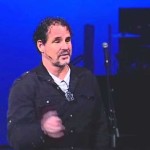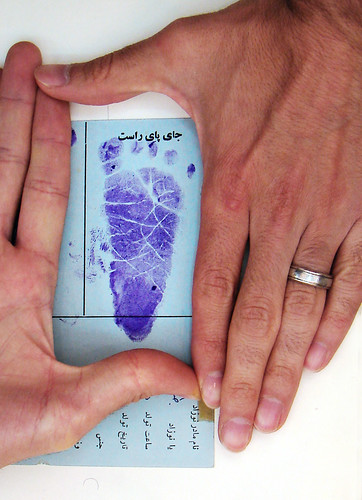We run our website the way we wished the whole internet worked: we provide high quality original content with no ads. We are funded solely by your direct support. Please consider supporting this project.
Is God Personal?
![]() Hamed Saber via Compfight
Hamed Saber via Compfight
How can we trust that God is personally involved in our lives? Are our seemingly “small” lives significant enough for God to get involved when you consider the vastness of all that goes on in the cosmos. These are common question raised by skeptics and seekers. In Letters from a Skeptic, Greg answers this question in a few ways. Here is one of them:
________________
The whole force of positing a personal Creator to explain our personal characteristics in the first place is derived from the fact that our personal characteristics (our moral convictions, our reason, our love, etc.) could not come about by accident!
Let me get at this by raising a set of different questions. Don’t our imperfect personal characteristics presuppose the existence of a perfect personal being?
For example, don’t our imperfect moral convictions presuppose the existence of a perfect moral standard? How else would we know ours is imperfect? And doesn’t our imperfect reasoning and knowledge presupposed the existence of a perfect “reasoner” and “knower”? If the Creator is not perfectly moral and perfectly knowing, against what is His imperfection measured? I would argue that the Creator, by definition, is the definition of what it is to be perfect. For nothing, by definition, could be above Him.
The gist of all this is that if we imperfect beings are morally outraged at the injustices which exist in our world, must not the creator be infinitely more outraged? If we hurt, out of love and moral conviction, for those whom we know suffer in our world, must not the creator hurt infinitely more? Would he not be less moral, less loving, less knowing than us if this were not the case? But if this were the case, the effect (us) would be greater than the cause (God), and this is impossible.
The enormity of the cosmos, and our smallness in relation to it, would only present a problem for God’s love and care if he were himself one product of it (an effect). But he’s behind the whole thing! His love and care is perfect, hence inexhaustible, and so whatever else he’s got going in the universe (and for all we know he may have a lot!), there’s plenty left over for us “small” human beings.
Thus I find it impossible to suppose that the ground of our personal characteristics (God) doesn’t personally care about us.
The implications of this for our understanding of ourselves is, I think, enormous. It means, that God knows you — perfectly (better than you know yourself). It means that God loves you — perfectly (more than you love yourself). And it means that God cares about your suffering and moral convictions — perfectly (more than you care about them yourself).
It also means that it makes sense to begin inquiring about what relationship our Creator wants with us. What are His purposes for our lives? What does He want with us? What can we know about Him? Has He revealed Himself to us at any point? These questions follow naturally once we understand that God is already personally involved in our lives.
Category: Q&A
Tags: Apologetics, God, Letters from a Skeptic, Love
Topics: Attributes and Character
Related Reading

Terror in the Night
I’ll never forget the night it first happened to me. I was thirteen, sharing a bedroom with my older brother. I woke up in the middle of the night and felt as if something was pinning me to the bed, choking me, and electrocuting me, all at the same time. The wind was blowing through…

Did Jesus Have Two Minds?
As I laid out in the previous post, I believe Jesus is fully God and fully human. The question is: How is this possible? How do we talk about the way that Jesus was fully God and fully man? The Creed of Chalcedon (451) tries to answer the question this way: We, then, following the…

Was Jesus Really Human Like the Rest of Us?
Did Jesus really live as a human like you and I do? Or did he walk around with special divine powers that we don’t have? In the previous post, I introduced the question: How was God both fully God and fully man? I explained the classical model of the Incarnation which views the incarnate Jesus…

Sermon Clip: The Worst of Sinners
In this short clip, Greg Boyd discusses Paul’s definition of love. In the full sermon, Greg talks about how in this dog eat dog world, we’re programmed to judge others. But to love others with unsurpassable worth, we must ascribe worth to them at cost to ourselves. In this sermon, Greg talks about how to…

The Sine Qua Non of the Kingdom
In contrast to the habit of judgment which I challenged in the previous post, God calls his people to love the way that God loves. But what exactly does this mean? People have a lot of screwy ideas about “love” today. We use the word “love” to mean a lot of different things, from sexual…

Problems with the Simple Foreknowledge View
Some have proposed a model of divine foreknowledge which allows them to avoid the dilemma of affirming either that God creates people for the purpose of sending them to hell (Calvinism) or that he creates them without certain knowledge of their fate (open theism). In this alternative view God knows that certain individuals will be…

